However, the exact number of trees expected to be cut down and moved will be revealed after the airport’s project is completed, officials told Hürriyet Daily News yesterday.
Category: Business
-
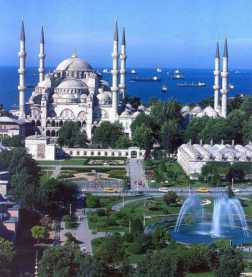
Almost 700,000 trees to be cut down for Istanbul’s third airport
A total number of 657,000 trees will be cut down for construction of Istanbul’s third airport, a report published on the Turkish Environment Ministry’s official website says.The report says the total number of trees in the area is 2,513,341 and 657,950 of them will be cut down completely, while 1,855,391 trees will be moved to new places. -
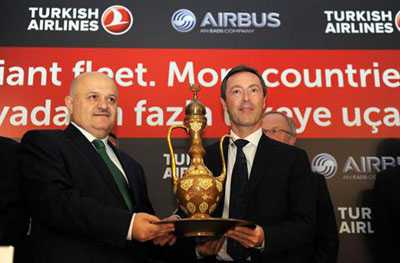
Turkish signs aircraft deal : TTR Weekly
Turkish signs aircraft deal
April 19, 2013 by AFP
Filed under Aviation, News

ISTANBUL, 19 April 2013: Turkish national flag-carrier Turkish Airlines (THY) signed on Wednesday a gigantic deal for up to 117 planes with European manufacturer Airbus in a deal worth up to US$9.3 billion (7.1 billion euros) at catalogue prices.
“We are inking today the biggest deal ever clinched by a Turkish airline,” THY chairman Hamdi Topcu said during a ceremony with Airbus in Istanbul finalising the order first announced last month.
Neither THY or Airbus provided financial details, but at catalogue prices the aircraft would be worth some US$9.3 billion, although discounts are usually obtained for large orders.
Turkish Airlines chairman of the board Hamdi Topcu (L) and Airbus president Fabrice Bregier pose during a signing ceremony on 17 April 2013 in Istanbul.
The order centres on Airbus’ A320 medium-haul family of aircraft, mostly on the new fuel-efficient Neo versions, and includes firm orders for 82 planes and an option for 35 others, to be delivered by 2020.
THY currently has a fleet of 215 planes, 107 of them purchased from Airbus and the rest from its US rival Boeing.
With the new order, the THY expects to be operating a 375-plane fleet by 2020, hoping to become “one of the 10 largest airlines in the world and carry 90 million passengers a year,” according to Topcu.
The airline flew 39 million passengers last year, and its aiming for 46 million this year.
“Today we celebrate a great achievement for Airbus and Turkish Airlines,” Airbus CEO Fabrice Bregier told reporters ahead of the ceremony.
Bregier praised THY’s growth, which he said was faster than Airbus.
Starting off as a monopoly, THY was privatised 10 years ago, which Turkish Finance Minister Mehmet Simsek said “put the company on a rational footing that allowed this extensive growth.”
In recent months, the company has also ordered 20 longer-range Airbus A330-300s aircraft, putting the total number of potential purchases as high as 137 planes.
Bregier also said Airbus was looking to be the “biggest partner” for Turkish aerospace companies by reaching a cumulative spending of US$2.4 billion in the country by 2025.
Transport Minister Binali Yildirim said Turkey would welcome “more of Airbus”, calling on the company to produce planes in Turkey.
As part of a shopping spree that began in October, the THY also placed orders for 95 Boeing planes, including 70 firm orders to be delivered by 2021.
© 1994-2013 Agence France-Presse
via Turkish signs aircraft deal : TTR Weekly.
-
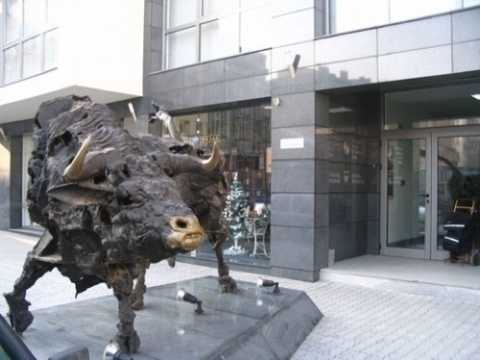
Deutsche Boerse decleares its interest in Turkey’s Istanbul exchange
Germany’s Deutsche Boerse has decleared its interest in Istanbul’s renewed bourse, which is looking for international partnerships with technlogy providers, market makers and investment funds.
The newly reorganized Borsa Istanbul is looking for strategic partners in three different categories to elevate its reputation amid attention from the German bourse, which has expressed interest in the Turkish bourse’s partnership plans.
“The first of these [categories] will be selected from among the groups that will support our technological infrastructure, enhance our market access and increase our international popularity. The second will be among the market makers that could permanently provide liquidity, and the third will be among large and private investment funds that are acknowledged as opinion leaders in the global markets,” _brahim Turhan, Borsa Istanbul’s chairman and CEO, told daily Hrriyet yesterday, adding that 40.5 percent of the stock exchange would be given to strategic partners in the three categories.
Borsa Istanbul has already attracted attention from Germany following its recent reorganization.
“Turkey has a spectacularly fast-growing economy between Asia and Europe,” Deutsche Boerse Corporate Affairs Deputy President Frank Herkenhoff told Anatolia news agency yesterday.
“That’s why we are closely interested in the efforts [of Turkey] to make Istanbul an international finance center. We are interested in the plans of the Turkish government about this issue,” the Gruppe Deutsche Boerse spokesman said.
Global interest
Herkenhoff said the recent consolidation of the gold and stock exchanges under the single umbrella of Borsa Istanbul was an important step in Istanbul’s attempt to become a financial center, adding that the Deutsche Brse viewed possible strategic partnerships with the Turkish exchange favorably.
“Our Bourse has an understanding to build a successfully strategic partnership with the stock market in Istanbul,” Herkenhoff added.
The Turkish government and Borsa Istanbul have both said their next move will be to form international partnerships.
Some media reports claimed Borsa Istanbul was in talks with information technologies (IT) departments of leading global stock exchanges including the Deutsche Brse, Nasdaq, the London Stock Exchange, the Chicago Mercantile Exchange-CME and The New York Stock Exchange (NYSE) for technology infrastructure equipment partnerships.
After the completion of all required works by the end of 2015, bourse officials plan to offer 49 percent of the entity to the public, Turhan said.
bne/Hurriyet Daily News

-
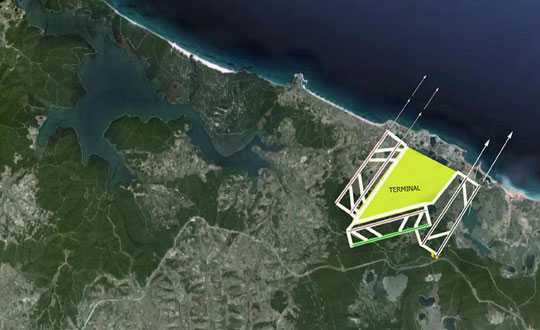
UPDATE 1-Istanbul airport tender seen drawing four bids-sources
* Third Istanbul airport project worth 7 billion euros
* Technical complexities discourage foreign interest
* Airport described as world’s largest at full capacity (Adds quote, details, background)
By Ozge Ozbilgin
ANKARA, April 19 (Reuters) – A tender to build Istanbul’s third airport, which Turkey says could eventually be the world’s largest, is expected to attract up to four bids, with limited foreign interest in the 7 billion euro ($9 billion) project, sources close to the matter said.
The government project reflects the growing importance of Istanbul, Europe’s largest city, as a regional transport hub in tandem with Turkey’s economic rise over the last decade.
Alongside already expected bids from TAV, which is partly French owned, and IC Ictas-Fraport, the sources said a consortium of Turkishconstruction companies Cengiz, Kolin, Limak, Mapa and Kalyon was set to bid in the May 3 tender.
Turkish conglomerate Sabanci Holding and construction company Enka Insaat were also working together on a possible bid, the sources said, adding that the size of the project and the technical difficulties which it entails were seen discouraging foreign interest.
“We think it would be a surprise if a bid is made by anyone apart from these four groups,” one source close to the matter said.
Quarries are located in the area near the Black Sea on the European side of Istanbul where the airport is to be built and filling them alone will cost some 2-2.5 billion euros, discouraging foreign interest, the source said.
At the start of the process, airport operators from Singapore, Britain and the Netherlands expressed an interest but there is no indication that any will take part in the tender.
The same source also said it would be difficult for new partners to join the project after the tender.
The companies involved and government officials declined to comment.
REGIONAL HUB
Turkey unveiled in January its plans to build the airport, which will have a total of six runways and eventually able to handle 150 million passengers per year.
Turkey’s transport minister said the airport would be the largest in the world in terms of passengers at full capacity, though it was not clear when this would be. Istanbul, the hub for flag carrier Turkish Airlines, is becoming a major regional hub, linking destinations in Europe and Asia.
The tender for the build-operate-transfer project, to be conducted in four stages, will be for a 25-year lease. An annual capacity of 90 million passengers is planned for the first stage.
The first stage of construction is expected to be completed in 3-4 years. But sector sources said it would be nearly impossible to finish the construction so quickly.
Among the expected bidders, TAV has the operating rights for Istanbul’s Ataturk airport, the country’s largest with some 30 million international passengers last year.
Operations at Ataturk are likely to be heavily scaled back when the third airport opens. Ataturk’s new international terminal costing hundreds of millions of dollars was opened only just over a decade ago, but a huge rise in air traffic through Istanbul has left it running at full capacity. The airport has only two main runways.
TAV has said the Turkish airports authority would compensate it for any losses if the third airport opened while it was still running Ataturk.
TAV also runs airports in Tunisia, Macedonia, Georgia, Latvia and Saudi Arabia. Among the other prospective bidders, Limak has also been involved in airport projects on the Asian side of Istanbul, in Egypt and in Kosovo.
Hamdi Akin, the chairman of major TAV shareholder Akfen, said earlier this month the company was not looking for a partner in the project, though it could consider a financing partnership later.
Bidders in the project are expected to provide around 1.5 billion euros in share capital, with project financing seen amounting to around 5 billion euros. ($1 = 0.7644 euros) (Reporting by Ozge Ozbilgin; Writing by Daren Butler; Editing by Clelia Oziel)

-

IPRN East Meets West Conference in Istanbul
ISTANBUL–(BUSINESS WIRE)–April 17, 2013–
The International PR Network (IPRN) will hold its annual conference in Istanbul under the chairmanship of Asil Akin of Team Communications.
Members from the 43 strong group of independent PR consultants will gather for the eighteenth annual meeting from 4-8 May, 2013. Every year a different member country hosts the meeting so that participants are able to get a better understanding of how business works within different cultures.
This year the topics under discussion will include Social Media, PR Measurement, New Business in an ever-changing world and Future Challenges Facing PR Agencies, particularly the opportunities for increasing client services as the creators of content for digital media. Additionally members will present their campaign case histories to compete for the prestigious Project of the Year Trophy and the three education bursaries which are now awarded each year to the winning agencies.
Asil Akin, commented, “We are delighted to be hosts for our 18th meeting. Istanbul is unique in that it has one foot in Europe and another in Asia and this dictates very much how we view the opportunities for our international clients in crossing cultures and borders. IPRN Agencies are all about local knowledge applied to international marketing.”
The conference also provides an excellent networking opportunity, General Secretary, Jonathan Choat of Nexus Communications in the UK commented, “If we are to work together as business partners, exchanging views and often working for each other’s clients on projects, then it is important that we meet face to face with our partners and learn of their capabilities and experiences.”
The combined fee billing of IPRN members worldwide is US$53 million, which is managed by 500 experienced and focussed professionals.
CONTACT: For IPRN:
Jonathan Choat, General Secretary
or
Maggi Fox, Press Officer
01793 784344/07770 754811
SOURCE: International PR Network (IPRN)
via IPRN East Meets West Conference in Istanbul – WSJ.com.
-
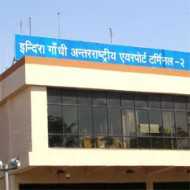
Why GMR Infra is keen to sell shares in airport biz
Moneycontrol Bureau
 GMR Infrastructure is likely to sell shares in a public offer for its airport division. The firm that runs Delhi and Hyderabad airports along with an international airport in Istanbul, has debt of around Rs 4,000 crore in the vertical.
GMR Infrastructure is likely to sell shares in a public offer for its airport division. The firm that runs Delhi and Hyderabad airports along with an international airport in Istanbul, has debt of around Rs 4,000 crore in the vertical.The company is looking at raising around Rs 2,000 crore to boost expansion and help a clutch of private equity investors to sell shares in the company, says an Economic Times report quoting sources. The firm is working out size and other details related to the potential IPO.
The report further says that the listing is mainly to help investors exit as the company does not have immediate fund requirement. Private equity firms together own around 21 percent stake in the company.
Laden with over Rs 30,000 crore debt, GMR has adopted asset-light asset- right’ strategy by which it will offload stake in its power, road and airport projects and re-deploy proceed from stake sale in new projects. This approach will also help it clean balance sheet
Last month, the company sold 70 percent stake in an energy venture in Singapore and this helped the company reduce debt by over Rs 2,000 crore.
Even GMR’s competitor, GVK Power and Infra has in recent past said that it will sell stake in business division to ease liquidity pressures. The firm has a debt of around Rs 16,000 crore with an over Rs 500 crore annual interest outgo.
Considering the fact that the GMR and GVK, both have undertaken big ticket and long gestation projects in all their business verticals, such debt levels is not abnormal, say analysts. GVK is also looking to offlad stake in airport vertical at an appropriate time.
via Why GMR Infra is keen to sell shares in airport biz – Moneycontrol.com.
